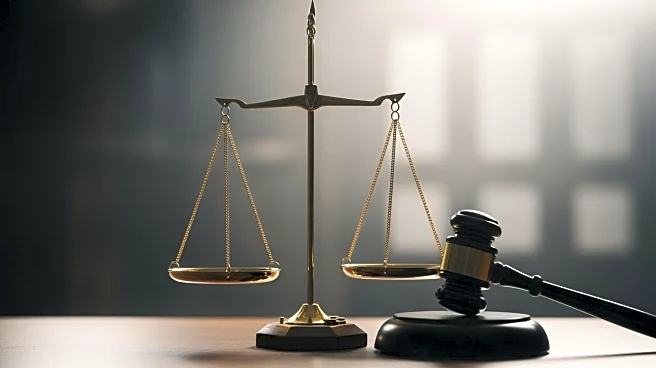What's Happening?
A federal judge has granted a request by Kilmar Abrego Garcia's attorneys to delay his release from jail, effectively preventing his immediate deportation. Abrego Garcia, an illegal migrant detained in Tennessee
on human smuggling charges, was set to be released, at which point federal immigration agents planned to deport him. U.S. Magistrate Judge Barbara Holmes agreed to the delay, allowing Abrego Garcia to remain in custody until his next court hearing in July. The decision comes amid claims by Abrego Garcia's defense that the charges against him are unfounded and that his deportation would occur before the conclusion of his criminal proceedings. The Trump administration has accused Abrego Garcia of being an MS-13 gang member and participating in a conspiracy to smuggle illegal migrants, guns, and narcotics across the U.S. over a decade.
Why It's Important?
This case highlights the complex intersection of immigration enforcement and criminal justice in the U.S. The decision to delay Abrego Garcia's deportation underscores the legal challenges faced by individuals accused of serious crimes while also being subject to immigration proceedings. The case has drawn attention from political figures, with some Democrats advocating for Abrego Garcia's rights and questioning the motives behind his prosecution. The outcome of this case could set precedents for how similar cases are handled, particularly concerning the balance between criminal charges and immigration enforcement. It also reflects ongoing debates about the treatment of migrants and the role of federal authorities in immigration cases.
What's Next?
Abrego Garcia's next court hearing is scheduled for July 16, where further legal arguments will be presented. The case is likely to continue attracting attention from both legal and political communities, with potential implications for immigration policy and enforcement practices. Stakeholders, including immigration advocates and federal authorities, will be closely monitoring the proceedings. The outcome could influence future cases involving migrants with criminal charges, particularly in how courts balance deportation with the right to a fair trial.









